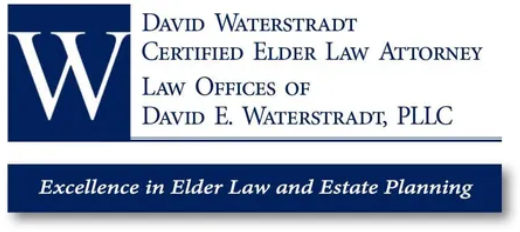
Michigan Courts Weigh In on When a Patient Advocate’s Authority is Revoked
The Michigan Supreme Court recently declined to review the decision of the Michigan Court of Appeals in Estate of Margaret Marie Roush v. Laurel’s of Carson City. Ms. Roush was a patient at the Laurel’s of Carson City, a skilled nursing facility. Ms. Roush had nominated a patient advocate, and on October 24, 2012, that nominated patient advocate agreed that Ms. Roush should remain in the facility’s care. However, a dispute arose as to whether two doctors had certified that Ms. Roush was unable to make her own decisions, a condition necessary for the patient advocate to have any decision making authority. Ms. Roush was retained at the facility until November 21, 2012. In the intervening period, two doctors did in fact find Ms. Roush unable to participate in her decision making, but additional medical evidence was also produced to support the proposition that Ms. Roush was capable of making her own decisions. Most importantly, on November 12, Ms. Roush formally revoked the existing patient advocate designation.
Ms. Roush was ultimately allowed to leave the facility, and died a short time later in her home. However, the facility was sued, among other things, for false imprisonment and intentional infliction of emotional distress during the period Ms. Roush was forced to remain in the facility after the dispute arose, and after she revoked the patient advocate designation.
This case raises a critical issue in the law governing patient advocate designations: When a person who has previously created a patient advocate designation is deemed unable to make their own medical decisions by two doctors, but then revokes that patient advocate designation, are that person’s rights to make their own medical care decisions (a) immediately restored or (b) suspended until a court decides whether they can make their own decisions or whether a guardian needs to be appointed to make those decision for them?
Michigan’s patient advocate law provides that:
… even if the patient is unable to participate in medical treatment decisions, a patient may revoke a patient advocate designation at any time and in any manner by which he or she is able to communicate an intent to revoke the patient advocate designation. If there is a dispute as to the intent of the patient to revoke the patient advocate designation, the court may make a determination on the patient’s intent to revoke the patient advocate designation. If the revocation is not in writing, an individual who witnesses a revocation of a patient advocate designation shall describe in writing the circumstances of there vocation, must sign the writing, and shall notify, if possible, the patient advocate of the revocation. If the patient’s physician, mental health professional, or health facility has notice of the patient’s revocation of a patient advocate designation, the physician, mental health professional, or health facility shall note the revocation in the patient’s records and bedside chart and shall notify the patient advocate. MCL 700.5510(d)
The Court of Appeals decision is on the side of the proposition that the patient advocate’s authority is “immediately revoked.” While this is an unpublished decision and not necessarily binding on other courts in Michigan, it will stand as persuasive authority and represents a missed opportunity by the Supreme Court to clarify the law. There will likely be unintended consequences to Supreme Court’s decision. For example, what does a nursing home do when one of its residents has been deemed unable to make their own medical treatment decisions, and admitted to the facility by their patient advocate, and then states his desire to go home. Is that expression alone a revocation of the patient advocate designation triggering the patient’s right to leave? Or does the person have to actually say the magic words “I revoke my patient advocate designation?” Is “I want togo home” enough to trigger the obligation of the staff person to report the incident as contemplated by statute? Enough to require a hearing so that a“court may make a determination on the patient’s intent to revoke the patient advocate designation.”
Nursing homes are likely to act out of an abundance of caution and begin demanding guardianship's be obtained in such situations. This is likely to increase the number of guardianship's instituted in Michigan, with the attendant increase in legal costs, delays in decision making and potential loss of rights by wards. Of course, this decision does not change the fact that it is still prudent for most persons to execute a patient advocate designation to make medical decisions so that you can name the person or persons of your choice to make medical decisions for you when you are no longer able to make them for yourself, and (hopefully) avoid the costs of a guardianship.
If you would like further information on patient advocate designations, guardianship's or other elder law or estate planning topics, please contact David E. Waterstradt, JD, CELA at 231.773.1169 or by email at david@davidwaterstradt.com. David is a Certified Elder Law Attorney by the National Elder Law Foundation, the only elder law certification program accredited by the American Bar Association.







